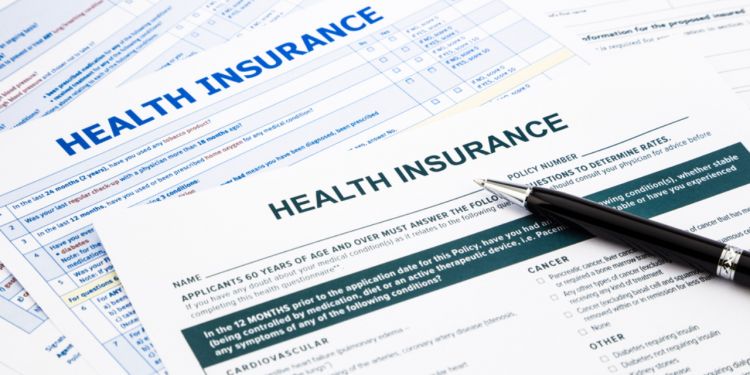Can you imagine the United States having a health care system
你能想象美國(guó)醫(yī)療系統(tǒng)
that delivers better outcomes than those we get today at a cost that is 75% less?
提供比現(xiàn)在更好的服務(wù),而費(fèi)用卻便宜了75%嗎?
That number is not a misprint or a fantasy; it's the reality in Singapore, where there is universal coverage.
該數(shù)字不是印刷錯(cuò)誤,也不是虛構(gòu)的;而是新加坡的現(xiàn)實(shí),那里有全民醫(yī)療保險(xiǎn)。
Life expectancy is 85, more than five years better than in the U.S. Decades ago, Singapore seriously lagged the U.S;
新加坡的平均壽命為85歲,比美國(guó)的多5年。幾十年前,新加坡還嚴(yán)重落后于美國(guó);
now, infant mortality is lower and other medical metrics in the city-state are also better than they are here.
現(xiàn)在,這個(gè)城市國(guó)家的嬰兒死亡率更低,其他醫(yī)療指標(biāo)也比美國(guó)的好。
Doctors and health-care practitioners are every bit as good in Singapore as they are here, or just about anywhere else in the world.
新加坡的醫(yī)生和醫(yī)療保健提供者和美國(guó)的一樣好,甚至和世界上其他任何地方一樣好。
Many get trained in the U.S. or at top-flight schools elsewhere.
很多醫(yī)生在美國(guó)或其他國(guó)家的頂級(jí)學(xué)校接受培訓(xùn)。
The nation is always scouring the world for best practices and cutting-edge technologies.
該國(guó)一直在世界各地尋找最佳實(shí)踐和尖端技術(shù)。
That's right—Singapore's hospitals and clinics don't hesitate to buy the latest and the best equipment and devices.
沒(méi)錯(cuò)——新加坡的醫(yī)院和診所會(huì)毫不猶豫地購(gòu)入最新最好的設(shè)備和裝置。
Just look at the prices of medical procedures in Singapore. In the U.S. heart-bypass surgery will set you (and your insurer) back some $130,000.
來(lái)看看新加坡各種醫(yī)療程序的價(jià)格。在美國(guó),心臟搭橋手術(shù)要花掉你(和你的保險(xiǎn)公司)約13萬(wàn)美元。

In Singapore? $18,000. A hip replacement costs 72% less and a heart valve 92% less.
在新加坡呢?1.8萬(wàn)美元。髖關(guān)節(jié)置換要便宜72%,心臟瓣膜便宜92%。
Drug prices there are a fraction of ours. Insurance premiums are inexpensive—
那里的藥品價(jià)格只是我們的一個(gè)零頭。保險(xiǎn)費(fèi)很便宜——
about $50 for those under 20 years of age and a little more than $1,000 a year for those in their late 80s.
20歲以下約為50美元,并且80多歲的老人一年只需一千多美元。
Moreover, if you pursue bad habits, such as overeating or smoking, your premiums go up.
此外,如果你養(yǎng)成了壞習(xí)慣,比如暴食或抽煙,那么你的保險(xiǎn)費(fèi)會(huì)增加。
Unlike in the U.S., individuals pay for the policy, so it's portable, not tied to their jobs.
和在美國(guó)不同,在新加坡,個(gè)人為保險(xiǎn)買單,所以它是靈活的,不受工作的限制。
Therefore, Singapore has a robust individual-insurance market.
因此,新加坡?lián)碛袕?qiáng)健的個(gè)人保險(xiǎn)市場(chǎng)。
Does Singapore accomplish this by underpaying physicians? Nope.
新加坡是通過(guò)壓榨醫(yī)生的工資來(lái)實(shí)現(xiàn)這一切的嗎?不是的。
The after-tax incomes (Singapore's income-tax rates are a fraction of ours) of general practitioners and specialists are about equal.
全科醫(yī)生和專家的稅后收入(新加坡的所得稅率只是我們的一個(gè)零頭)大致相當(dāng)。
And docs in Singapore aren't plagued by malpractice costs or countless hours spent filling out insurance forms.
并且新加坡的醫(yī)生不會(huì)受到醫(yī)療事故成本或花費(fèi)大量時(shí)間填寫保險(xiǎn)單所困擾。
As this year's election campaign heats up, the issue of health-care costs will come to the fore again.
隨著今年競(jìng)選活動(dòng)的升溫,醫(yī)療費(fèi)用問(wèn)題將再次成為焦點(diǎn)。
Unfortunately, the issue will be cast as the system we have today versus some version of a European-style single-payer system.
不幸的是,我們將就這個(gè)問(wèn)題,將我們今天的制度與某種歐洲風(fēng)格的單一支付體系進(jìn)行對(duì)比。
Neither model resembles what Singapore does. So what does that country do?
兩種模式都和新加坡的不像。 所以那個(gè)國(guó)家是怎么做到的?
譯文由可可原創(chuàng),僅供學(xué)習(xí)交流使用,未經(jīng)許可請(qǐng)勿轉(zhuǎn)載。



